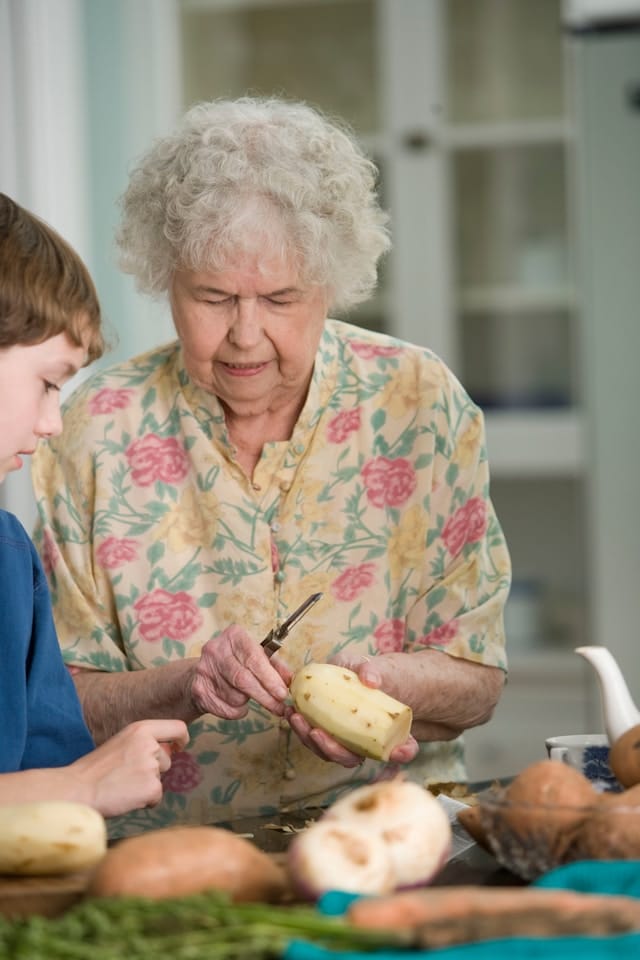As the years add up, we are often haunted by the notion of aging. But aging doesn’t have to be a daunting prospect. Instead, it can be a journey to better health and happiness. By adopting an active lifestyle and making wise health choices, we can help ensure a rewarding and vibrant life as we age. This article provides a comprehensive guide to healthy aging, featuring tips and strategies to optimize your health and quality of life.
Healthy Lifestyle for Aging Adults
Aging is an inevitable part of life. However, how we age largely depends on our lifestyle choices. A healthy lifestyle can slow the aging process, enhance vitality, and reduce the risk of disease.
Lire également : Understanding the impact of stress on your body
Exercise is a vital part of a healthy lifestyle, particularly as we age. Regular physical activity helps maintain weight, improves heart health, and boosts mental well-being. It also stimulates bone formation and helps prevent age-related conditions such as osteoporosis.
A well-balanced diet is equally important. As we grow older, our dietary needs change. Consuming foods rich in nutrients helps maintain a healthy weight, boosts the immune system, and reduces the risk of chronic diseases.
A lire aussi : The power of antioxidants in skin care
Adequate sleep is another key element. As we age, our sleep patterns may change, making quality sleep more essential than ever. Good sleep enhances memory, improves concentration, and helps regulate mood, thus contributing to overall well-being.
Cognitive Health and Aging
Just as physical health is important, so is cognitive health. As we age, it’s normal to experience some cognitive decline. However, certain activities and strategies can help maintain and even improve cognitive health.
Brain-healthy activities, such as puzzles, reading, and playing musical instruments, can stimulate the brain and help maintain cognitive function. Staying socially active also contributes to cognitive health, as social interaction can prevent feelings of loneliness and depression, both of which can contribute to cognitive decline.
Mindfulness and meditation are powerful tools for maintaining cognitive health. These practices help reduce stress, improve focus, and promote overall mental well-being, which can help preserve cognitive function as we age.
Disease Prevention and Health Care
Disease prevention and proactive health care are crucial to a healthy aging process. Regular check-ups and screenings can help identify potential health issues early, thereby increasing the chances of successful treatment and recovery.
Regular screenings for heart disease, diabetes, cancer, and other chronic conditions can detect potential issues before they become critical. Taking prescribed medications as directed, getting recommended vaccines, and following doctor’s orders contribute to disease prevention.
Preventive care also involves taking steps to maintain health and prevent disease. This could involve regular exercise, balanced diet, adequate sleep, and avoiding risky behaviors like smoking and excessive alcohol consumption.
Aging and Women’s Health
As women age, they experience a series of unique health changes, including menopause and increased risk of osteoporosis. Understanding these changes and how to manage them can help women age healthily.
Menopause marks the end of a woman’s reproductive years. While this is a natural process, it can bring with it a host of symptoms, like hot flashes, mood swings, and sleep disturbances. Regular exercise, a balanced diet, adequate sleep, and stress management techniques can help manage these symptoms and improve quality of life.
Osteoporosis, a condition that weakens bones and increases the risk of fractures, is more common in women. Regular weight-bearing and strength-building exercises, along with a diet rich in calcium and vitamin D, can help maintain bone health and prevent osteoporosis.
Empowering Aging Adults
Empowering aging adults involves helping them find the resources and support they need to maintain their health and independence. Access to accurate health information, quality health care, and supportive community services can all contribute to a healthier aging process.
Community resources, such as senior centers and social service organizations, can provide a wealth of support for aging adults. These may include exercise classes, nutrition counseling, mental health services, and opportunities for social engagement.
Technology can also play a role in empowering older adults. From apps that help monitor health and remind people to take their medication, to online platforms that offer virtual exercise classes and opportunities for social interaction, technology can help older adults stay healthy, active, and connected.
Remember that aging can be a positive experience. With the right lifestyle choices and the right mindset, you can enjoy a vibrant and fulfilling life in your later years. After all, age is just a number!
Staying Mentally Active and Socially Engaged
Whether you’re retired or still working, maintaining mental activity and social engagement is critical for healthy aging. Older adults who stay mentally stimulated and socially active are less likely to develop cognitive decline, depression, or loneliness, all of which can negatively impact overall health.
Mental stimulation is paramount to keeping your mind sharp as you age. Engage in activities that challenge your brain such as reading, solving puzzles, or learning new skills. These activities can help maintain cognitive function, enhance memory, and keep the mind active.
Staying socially engaged is another crucial component of healthy aging. Maintaining relationships with friends and family, joining clubs or groups, or volunteering can offer opportunities for social interaction. Social engagement not only provides emotional support but also stimulates the mind, thereby helping older adults stay mentally active.
Remember, keeping your mind active and maintaining social connections can enhance your overall well-being and contribute to aging well.
Regular Health Check-ups and Screenings
A proactive approach to health care can significantly improve the chances of successful treatment and recovery from potential health problems. Regular health check-ups and screenings are an integral part of this approach, especially for older adults.
Regular health check-ups allow your healthcare provider to monitor your overall health. They can help identify any changes in your blood pressure or weight, which could indicate potential health issues. Consistent check-ups also provide an opportunity to discuss any concerns you may have about your health.
Health screenings are vital in detecting diseases like heart disease, diabetes, and breast cancer early. The National Institute on Aging and the Department of Health recommend regular screenings as per the guidelines for Americans. Early detection increases the chances of successful treatment and can potentially save lives.
Remember, investing in regular check-ups and screenings is investing in your health.
Conclusion: The Path to Healthy Aging
Healthy aging is about embracing and enjoying our later years with a sense of purpose and well-being. It involves making conscious choices to stay physically active, eat healthily, maintain cognitive health, and stay socially engaged. Regular health check-ups, proactive preventive care, and making use of community resources and technology can all contribute to aging well.
Remember, aging is not about how old you are, but how well you live. With the right lifestyle choices and a positive mindset, older people can enjoy a vibrant and fulfilling life. Age should not be viewed as a barrier, but as a milestone to celebrate. After all, healthy aging is about adding life to our years, not just years to our lives. By following the tips and strategies outlined in this guide, you can embark on a journey of healthy aging, filled with vitality, health, and happiness.






